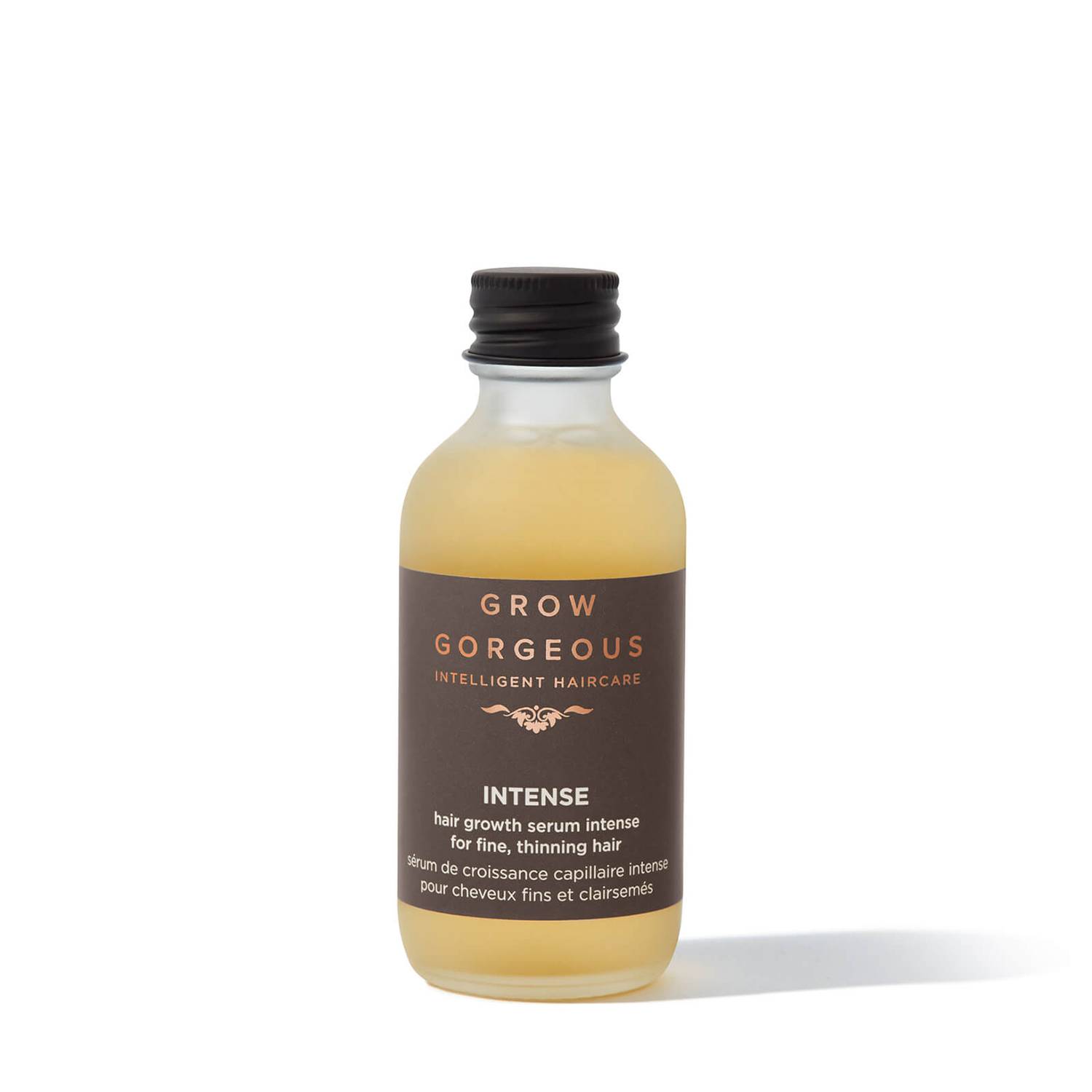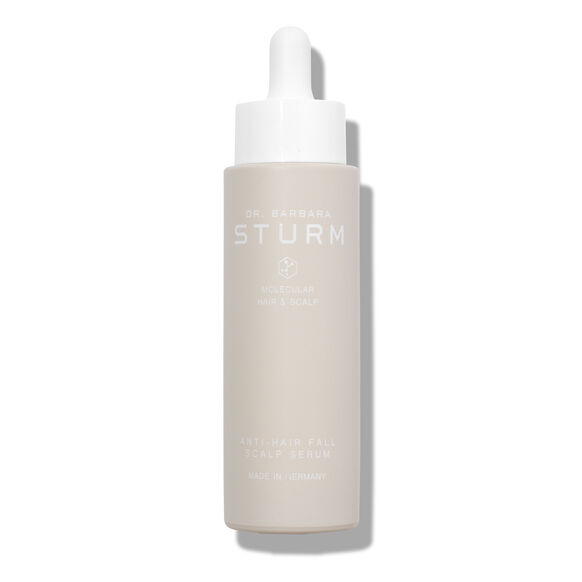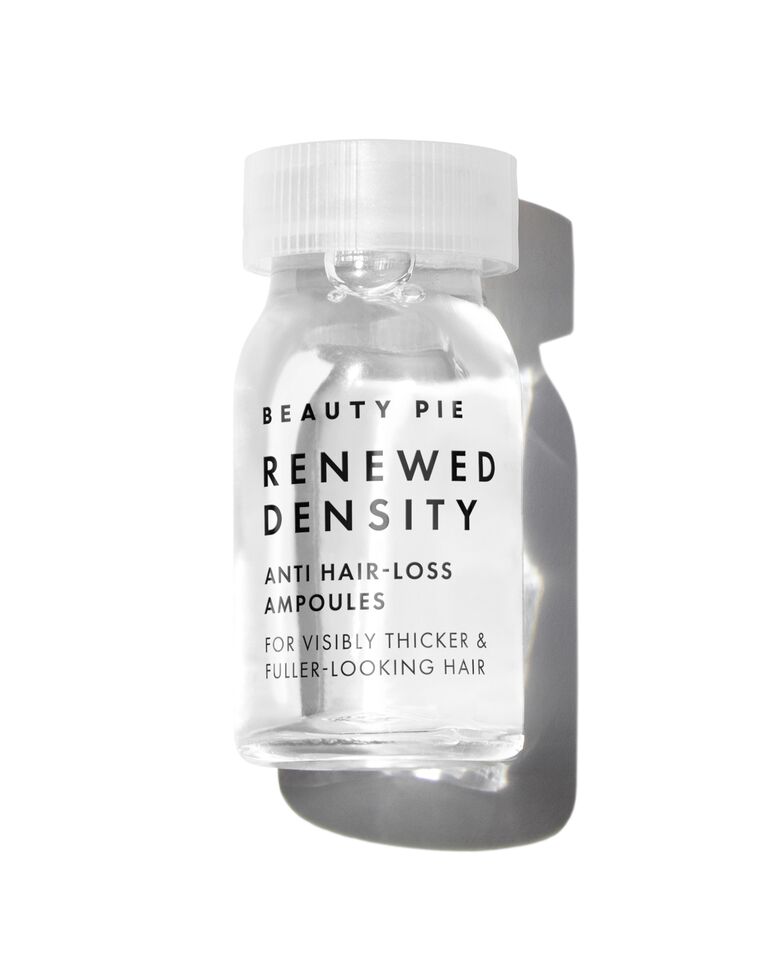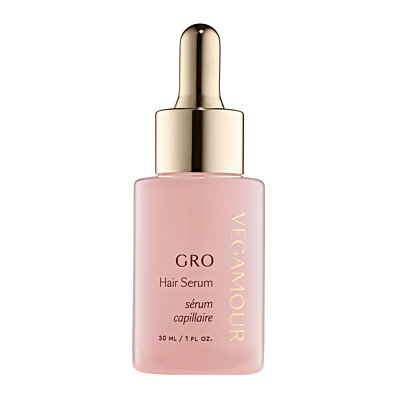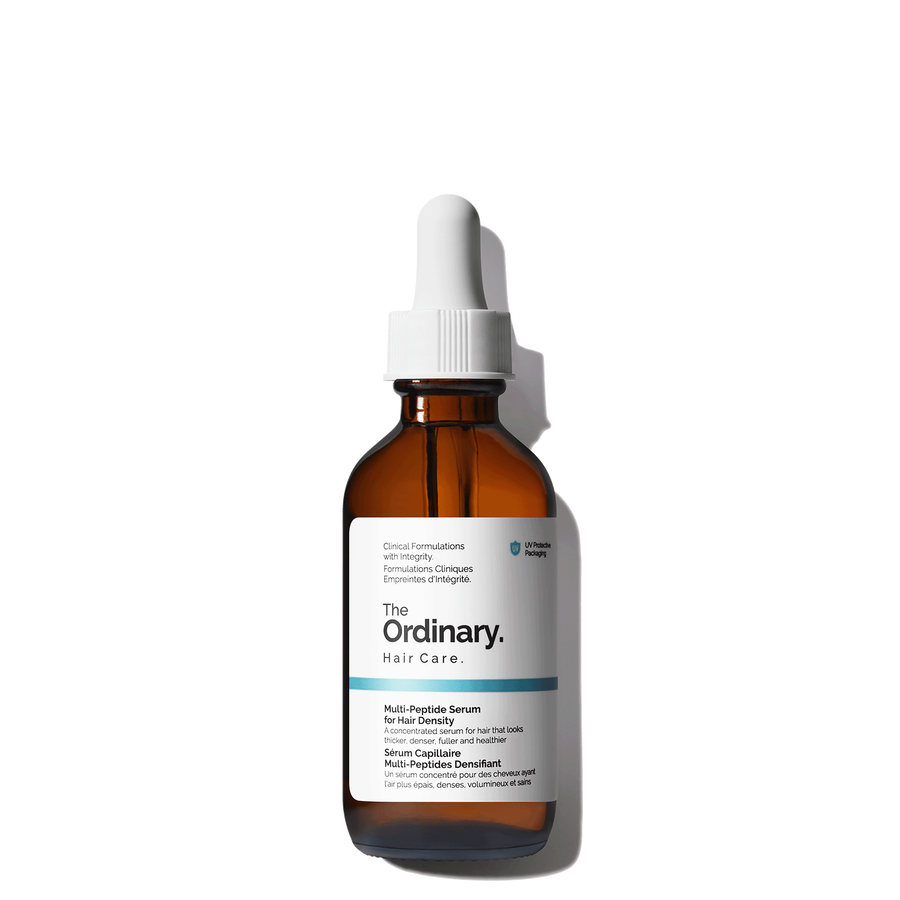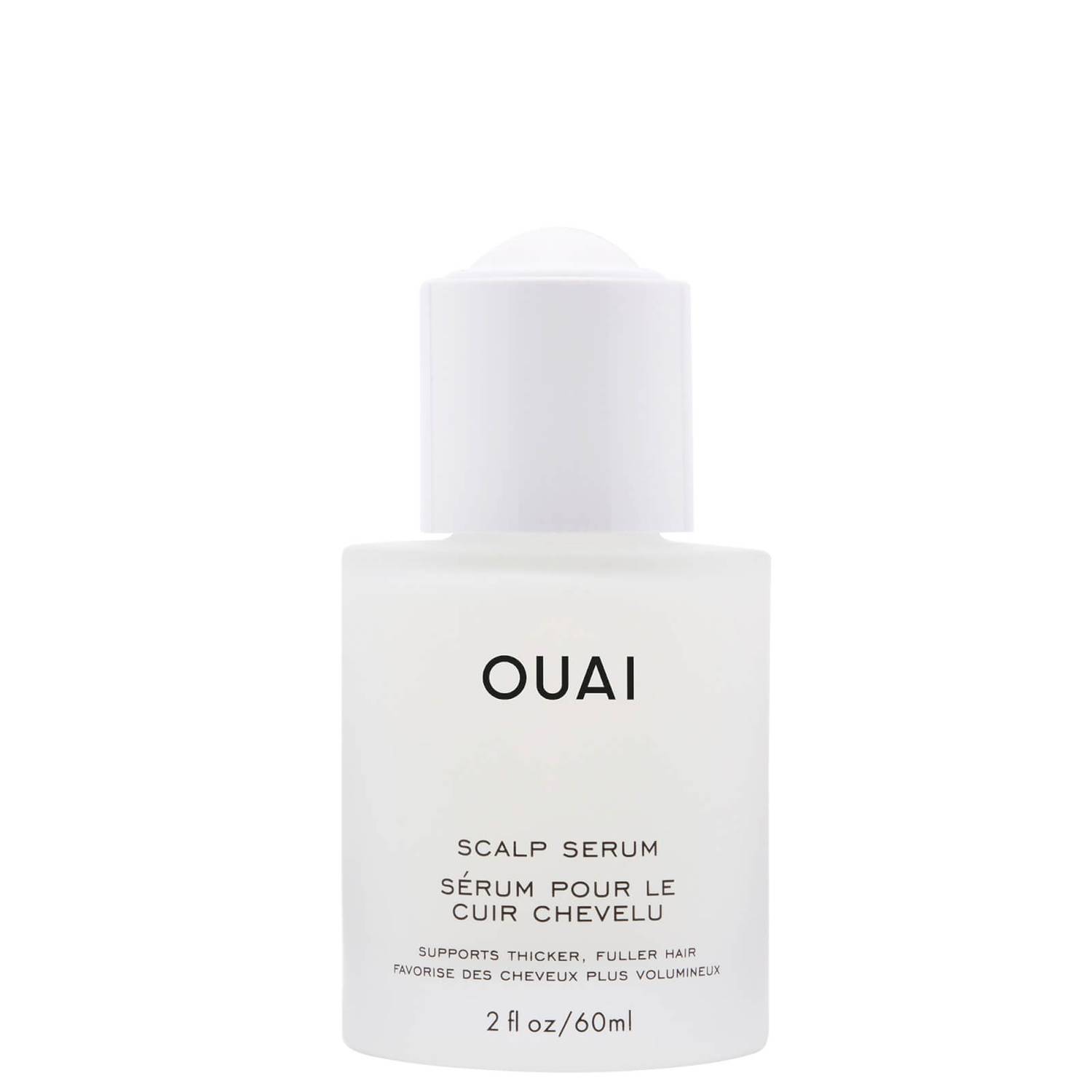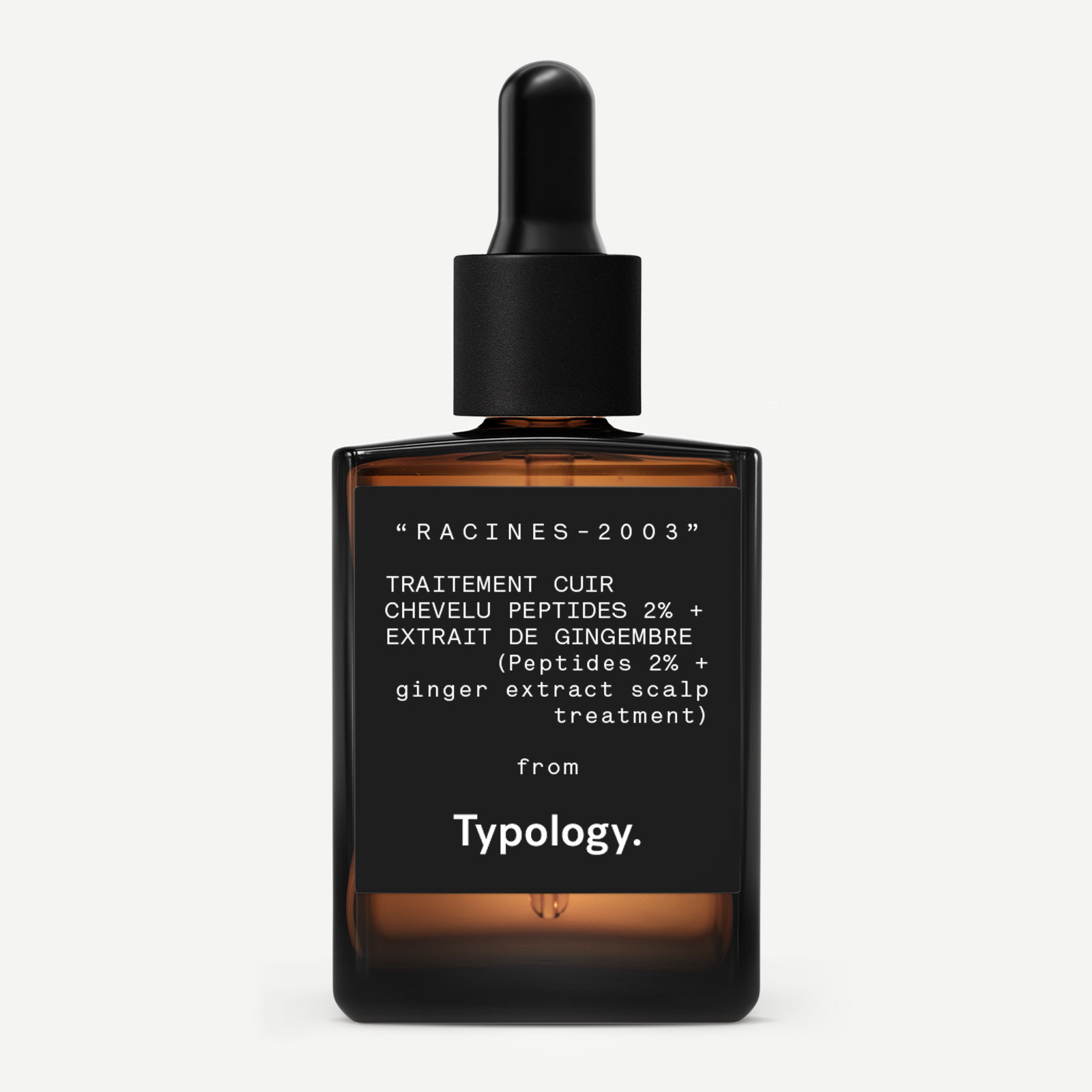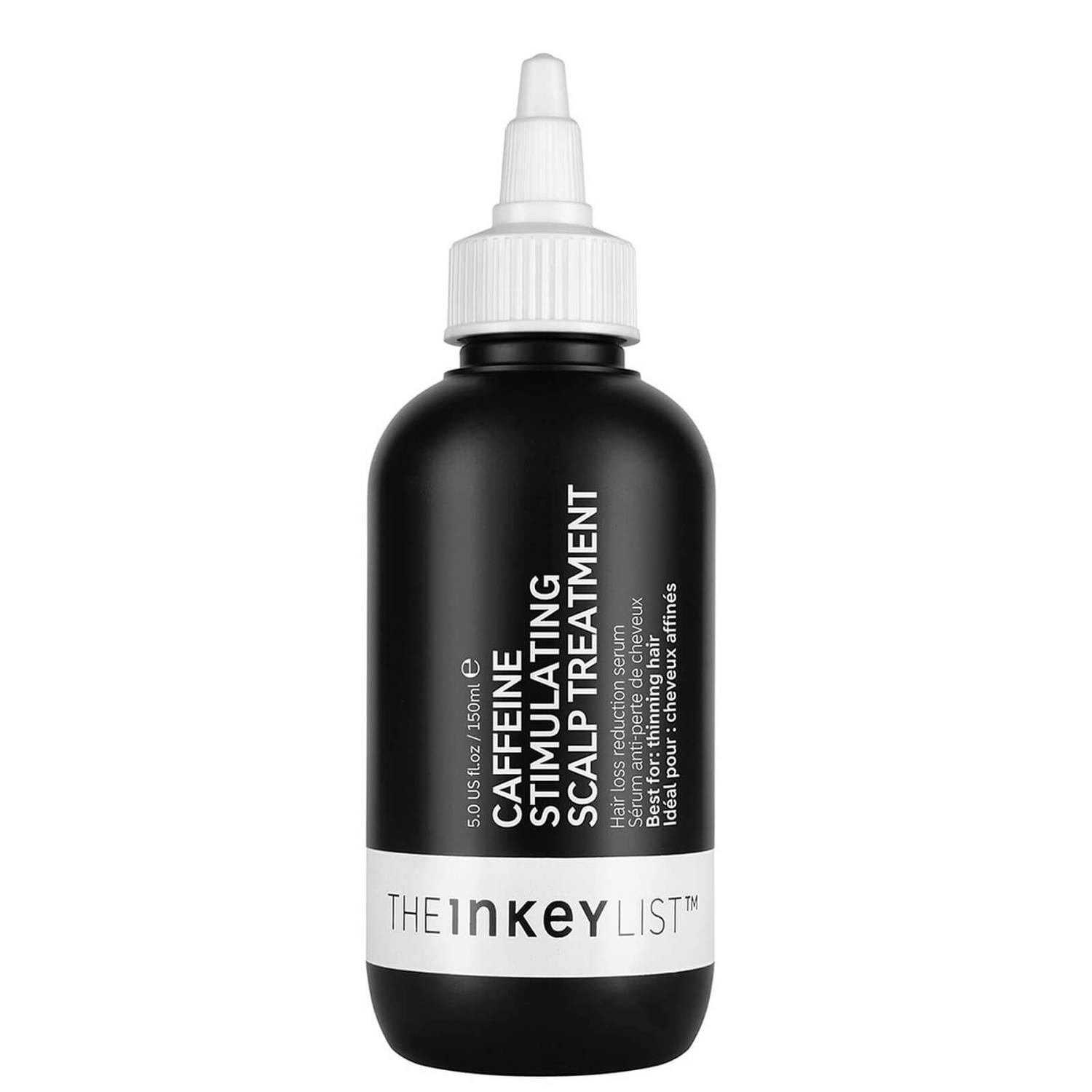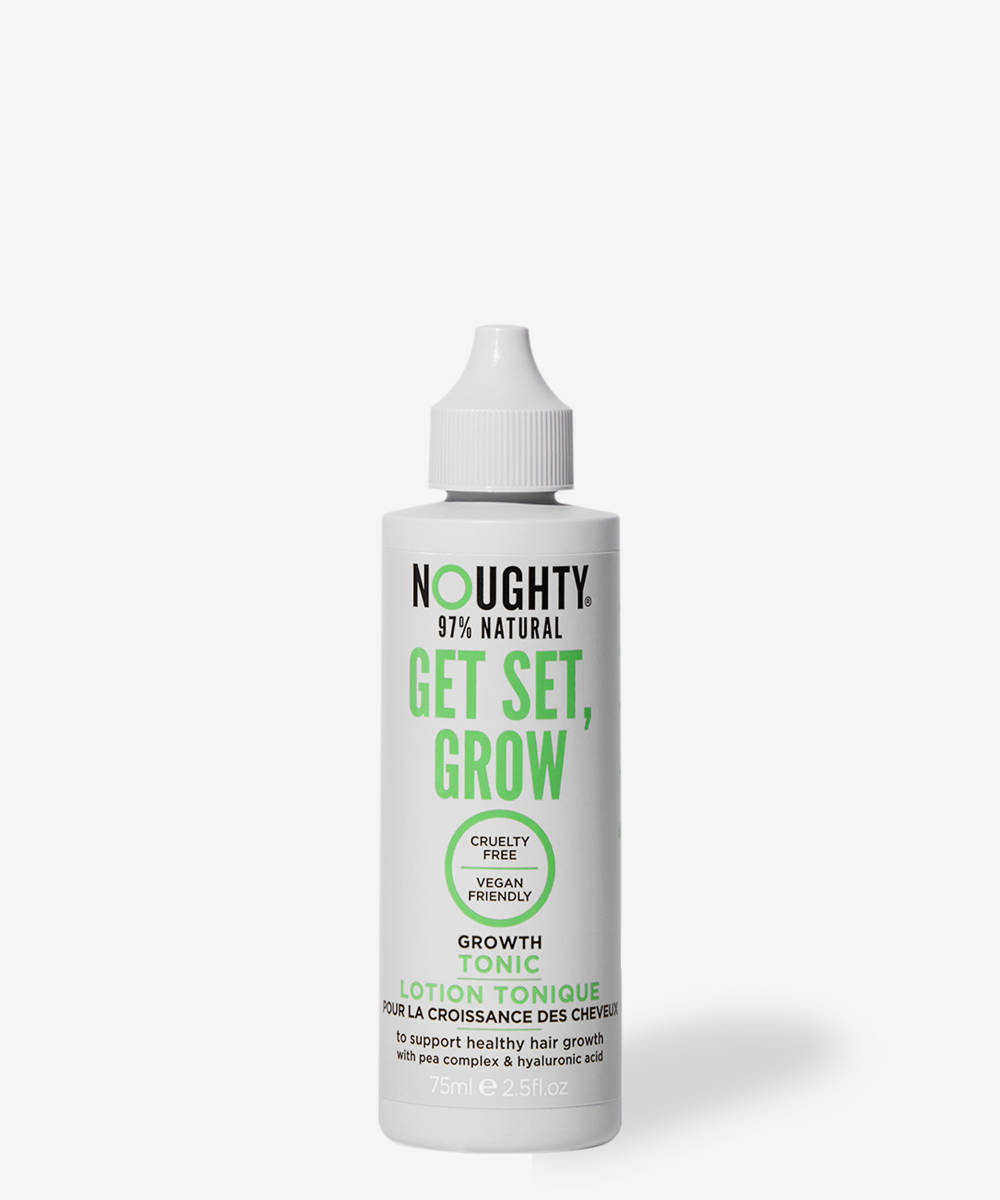12 Hair Growth Serums That Actually Make Thin Hair Look So Much Thicker
Whether caused by diet, stress, age, excessive styling (or a combination of the above), hair loss and hair thinning are amongst the most common hair-related concerns. And hair loss isn’t the preserve of men, either. According to a recent survey conducted by hair experts Philip Kingsley, 75% of British women are concerned about hair loss, and 42% have already experienced hair loss or thinning.
Fortunately, thickening and strengthening hair doesn’t always require professional treatment. There are tonnes of products which can help you to achieve longer, thicker, healthier hair at home. While you’ll find shampoos, conditioners, mists, and masks oriented towards preventing hair loss, hair growth serums are generally considered to be the most effective products to use. Like skincare serums, scalp serums use potent blends of active ingredients to quickly and effectively address specific concerns—in this case, hair loss and breakage.
While there are plenty of hair growth serums and treatments out there (we’ve rounded up the best ones below), it’s important to understand the root cause of your hair loss or hair thinning to start with. We spoke to Anabel Kingsley, trichologist and Brand President at Philip Kingsley for her take on the different types of hair loss, what causes them, and how to treat them.

What causes hair loss?
"There are many types of hair loss but the most common we see at our trichological clinics are hair thinning (known as androgenic alopecia or male/female pattern hair loss), and hair shedding, known as telogen effluvium,” says Kingsley. "Hair thinning, refers to reduced hair density. It happens very slowly, and is not always accompanied by increased hair shedding, which means it can be hard to spot in the early stages.”
According to Kingsley, hair thinning is caused by what’s known as ‘androgenic thinning’. "Androgenic thinning is related to androgens (male hormones) and is genetically predetermined,” she explains. "With androgenic thinning, the growth (anagen) phase of your hair cycle becomes shorter and shorter, and the hair also grows back progressively finer (thinner in diameter) over time.”
On the other hand, Kingsley explains that hair shedding is usually triggered by an internal disturbance to the body such as illness, stress, post-partum or nutritional changes or deficiencies. "The shedding occurs usually 6-12 weeks after the event that triggered it, so it is always important to look back to pinpoint the reason,” she says. "Although it can be extremely distressing, rest assured the hair will almost certainly grow back once the underlying issue has been resolved.”
How can you treat hair loss?
"There are many types of hair loss so it is important to identify the root cause in order to proceed with the correct treatment method,” says Kingsley. "For example if your hair loss is not due to a nutritional deficiency then taking a nutritional supplement isn’t going to be effective.”
So what are the most common causes of hair loss? According to Kingsley, hair thinning and hair shedding (as mentioned) but also breakage. "For breakage we would recommend targeted it from the two angles that are the most common culprits – dryness and damage,” she explains. "To address moisture depletion a weekly treatment with a hydrating pre-shampoo deep conditioning mask like Elasticizer is essential to add elasticity back to strands, giving it back its stretch which gives resistance to breakage. For damage and split ends use a bond repair treatment o repair and strengthen broken bonds to give hair back its strength.”
When it comes to supporting healthy hair regrowth (after thinning), Kingsley recommends the brand’s Density Preserving Scalp Drops. "They are clinically proven to help slow hair loss with continued daily use within three months,” she adds. "But for telogen effluvium (hair shedding) due to nutritional deficiencies, this can often be simply treated with changes to your diet, and nutritional supplements.”
With that said, hair growth serums are not always 100% effective—depending on the exact cause of your hair loss—so for stubborn and persistent hair loss, consulting a dermatologist or trichologist can be the failsafe option. "At our trichological clinics we undertake a holistic 360 degree consultation looking at our clients health, medical history, genetic history, lifestyle, diet, hair and scalp condition and we send them for blood test to identify any possible causes,” says Kingsley. "Once we have the full picture, we can identify the cause and treatment plan. Our trichologists formulate prescription-only medical grade scalp drops, containing a combination of anti-androgenic hormones, as well as a follicle stimulant to help regrowth and protect and maintain the follicle.”
What ingredients can help with hair growth?
"In terms of product formulation you want to look for stimulating ingredients such as caffeine,” says Kingsley. "However for breakage, look for formulas that contain nourishing, strengthening and hydrating ingredients.” Like so many things, our hair’s growth and strength are largely reliant on diet. "Being a non-essential tissue, hair is the last part of us to receive nutrients we intake, and the first to be withheld from when our diet is lacking,” she explains. "Vitamin, mineral and energy deficiencies are very common causes of hair loss in women. Even a small deficiency, or levels that fall towards the lower end of the normal blood reference range, can cause hair loss long before they impact your general health.”
Other ingredients Kingsley advises looking out for in hair growth serums are ferritin, zinc, protein, and biotin. "Ferritin deficiency is one of the most common causes of hair loss we see in women of menstruating age,” she adds. "While ferritin deficiency can cause diffuse hair shedding (i.e. hair loss from all over the scalp), it often affects the sides and temples the most, resulting in the growth of fine, wispy hairs to these areas that seem not to grow.”
The best hair growth serums:
1. Philip Kingsley Density Preserving Scalp Drops
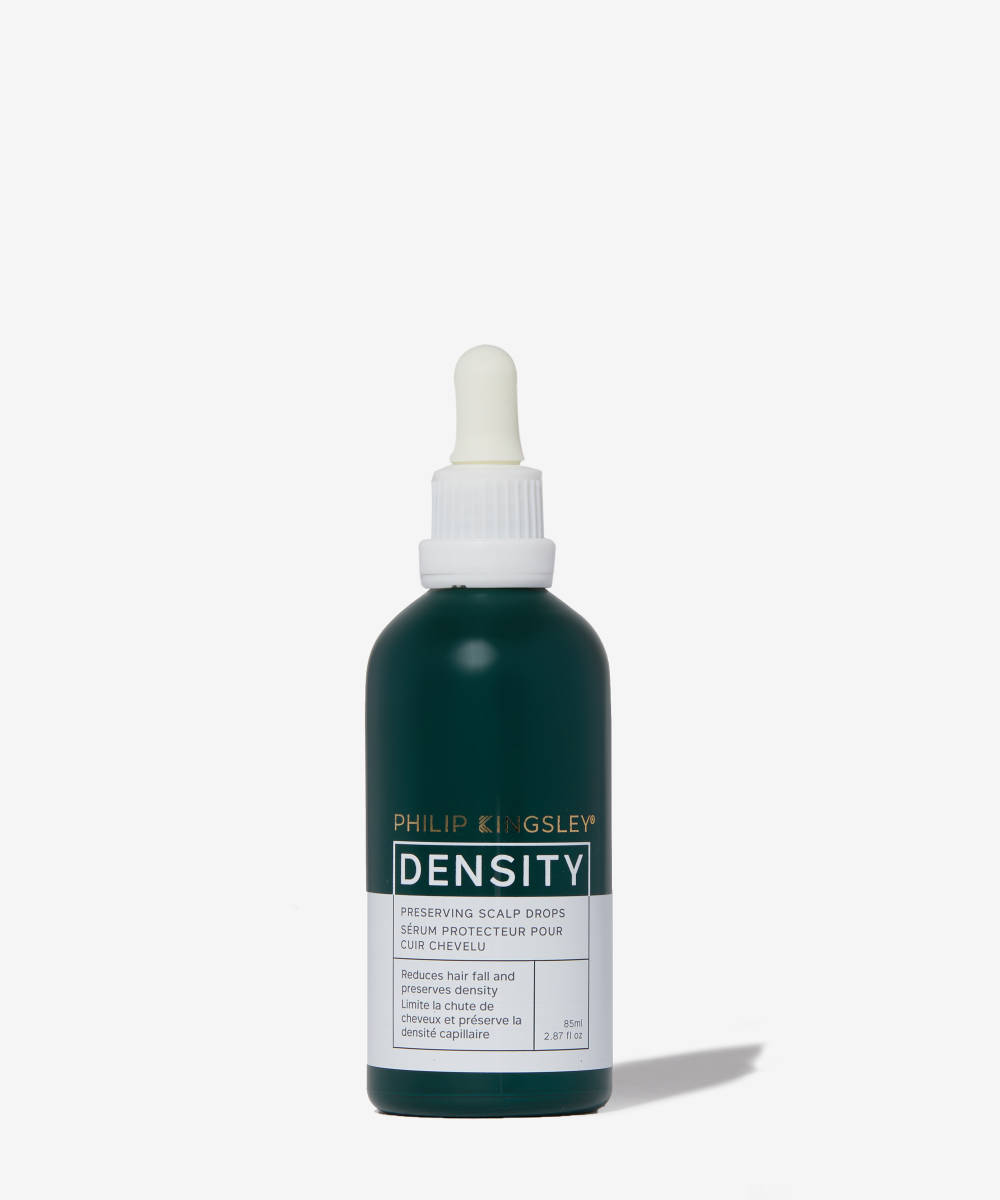
"Our Density Preserving Scalp Drops are a lightweight scalp serum containing a Biomimetic Peptide Blend; an innovative and unique combination of actives designed to help slow hair loss and improve hair density and quality over time," says Kingsley. In addition, the ingredients work to help reduce scalp visibility over time and improve health of hair follicles. "They are clinically proven to work," she adds. "Fully tested in an independent clinical trial over a three month period."
2. Grow Gorgeous Hair Growth Serum Intense
3. Dr. Barbara Sturm Anti-Hair Fall Scalp Serum
4. Beauty Pie Renewed Density Anti-Hair-Loss Ampoules
5. Vegamour GRO Hair Serum
6. The Ordinary Multi-Peptide Serum for Hair Density
7. By Beauty Bay Hair Density Hair Serum
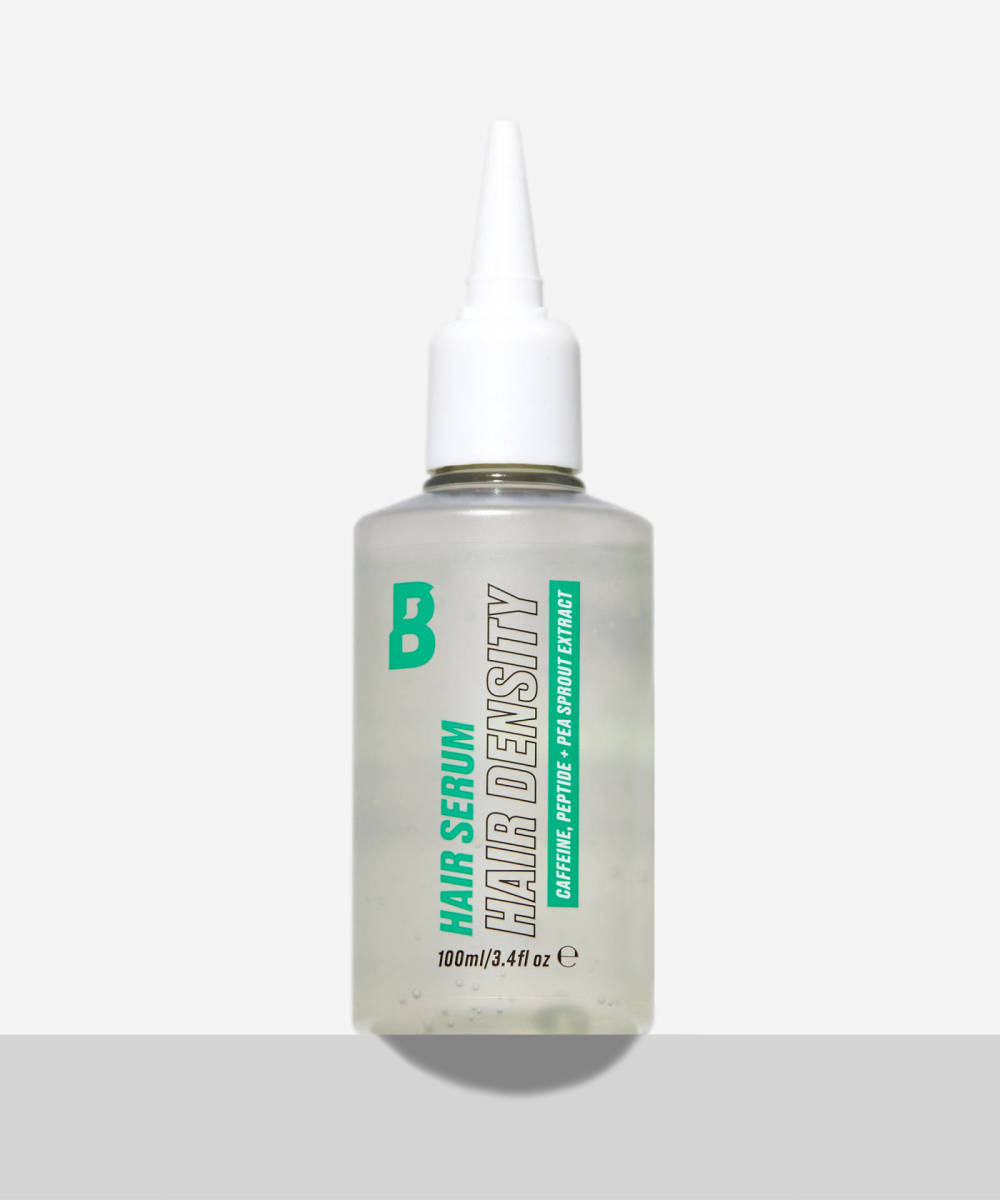
This is one of the best serums we've tried for daytime application - the clear gel doesn't leave any residue or look greasy. Amongst the key ingredients you'll find caffeine, peptides, and pea sprout extract. The latter acts like a superfood, feeding the scalp and hair with nutrients and antioxidants to stimulate hair growth.
8. OUAI Scalp Serum
9. Typology Densify Scalp Serum
10. Monpure London Follicle Boost Hair Density Serum
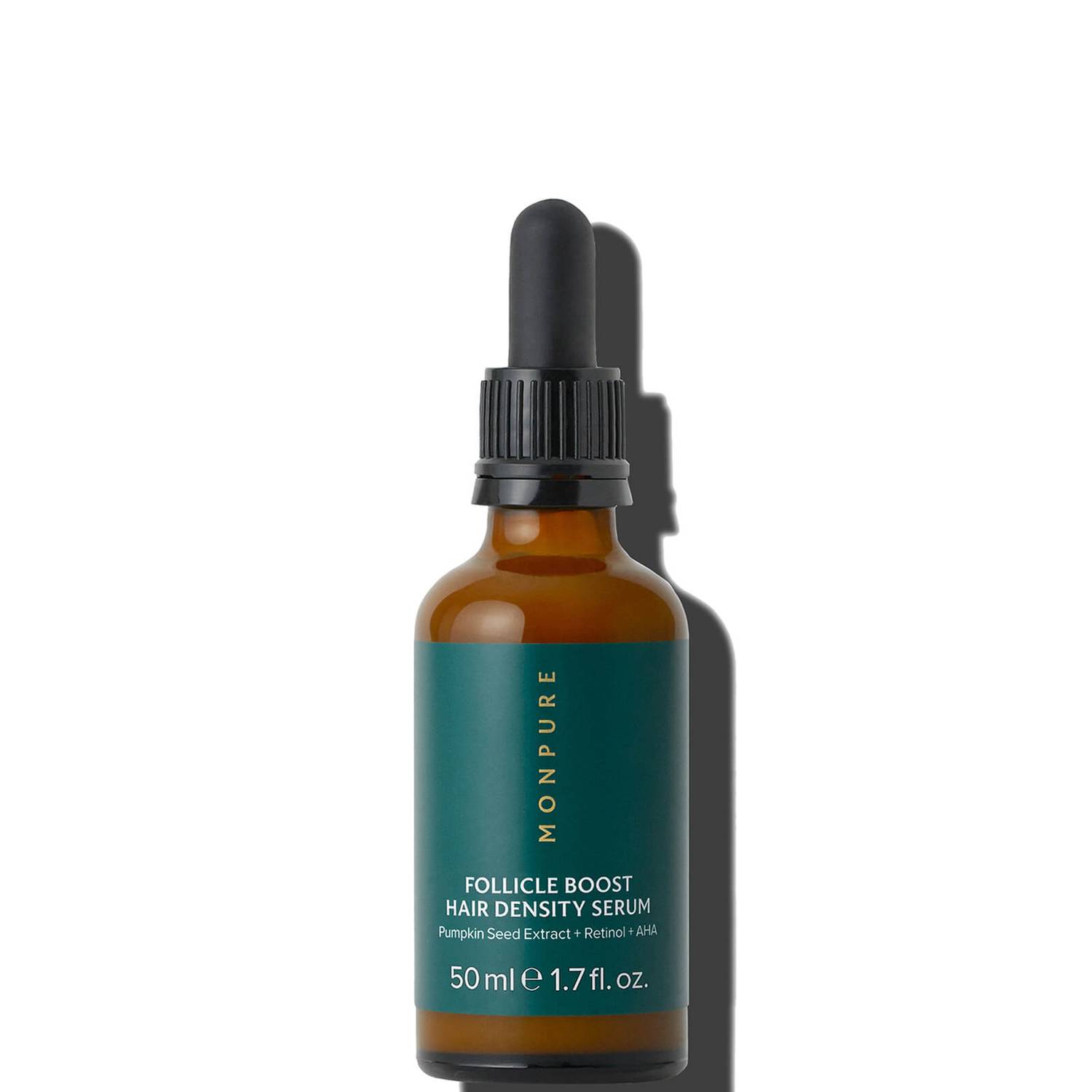
Monpure London's scalp serum may come with a high price tag, but according to reviewers, it's worth every penny. "Hair shedding and loss reduced by a good 50% within a couple of weeks," says one tester. "Now at almost 4 weeks use my hair looks in fabulous condition and hair loss is only a little above normal. Amazing."
11. The Inkey List Caffeine Stimulating Scalp Serum
12. Noughty Get Set Grow Tonic
Next Up: The Experts Have Spoken—These 12 2023 Hair Trends Are the Only Ones That Matter
Grace Day is a beauty editor and content creator. She has over 10 years of beauty-industry experience, spanning editorial, retail, and e-commerce, which gives her a unique understanding into how people shop for their beauty routines.
While studying for a history degree (specialising in the history of beauty) and working as a beauty adviser in department stores, Grace started writing her own beauty blog in order to share the products she discovered while dealing with acne. After graduating, she moved to Beauty Bay as beauty editor and content manager. Grace is currently a beauty contributor to Who What Wear. She has also written for Hypebae and PopSugar and works as a brand consultant and copywriter.
